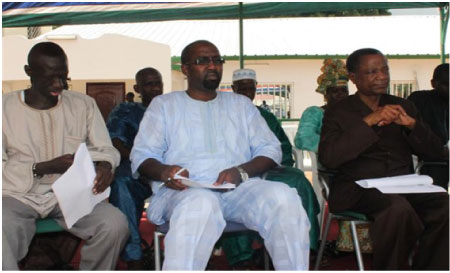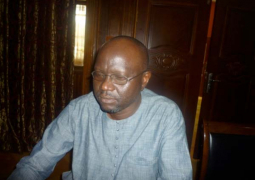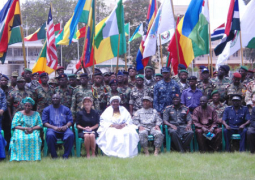
The Ministry of Health and Social Welfare, in collaboration with the World Health Organization (WHO) country office, last Friday commemorated the 10th African Traditional Medicine Day at the KMC grounds in Kanifing.
The theme for this year’s celebration was: “Decade of African Traditional Medicine Day: What Impact”.
Speaking at the ceremony, Dr Maakki Taal, permanent secretary at the Ministry of Health and Social Welfare, said the cardinal objective for the annual celebration of the day is to promote traditional medicine by increasing public awareness of this medicine discipline, hence ensuring its affordability and accessibility without compromising its quality.
“This theme, nonetheless, engenders the urge for reflection and evaluation of developments in traditional medicine in WHO African member states for the last ten years,” he said.
According to him, in The Gambia, there is existence of harmonious and cordial working relationship between members of the two medicine disciplines: traditional and conventional medicine.
Mr Taal finally expressed sincere gratitude to WHO for their untiring support to the promotion of traditional medicine in The Gambia, which is nonetheless complementing government’s contribution to health.
He also hailed the West African Health Organization (WAHO) for the immense support it is giving to his ministry in the development, promotion and institutionalization of traditional medicine in the country.
For his part, Dr Thomas Sukuwa, WHO country representative, said WHO in the African Region implemented a project on supporting countries to strength traditional health systems for malaria prevention and control.
Through this project, the WHO Regional Office for Africa was able to support countries to institutionalise traditional medicine in health systems with good achievements, he said.
“Despite these achievements, traditional medicine still has challenges,” Dr Sukuwa noted. “Key among these are the lack of a regulatory framework to control the practice of traditional healing in the country, including advertisements in electronic media and the like; depletion of uncommon medicinal plants due to environmental degradation; deforestation; lack of adequate funding to implement planned activities and the slow pace of integration of traditional medicine into the national healthcare delivery system.”
Read Other Articles In Article (Archive)




